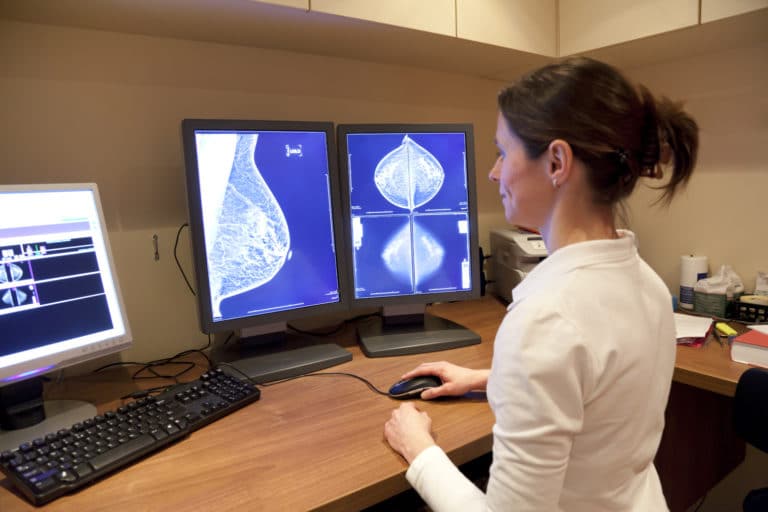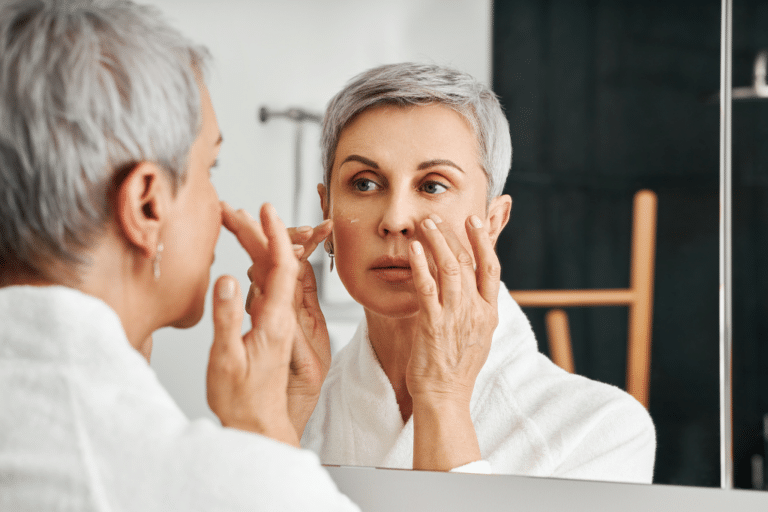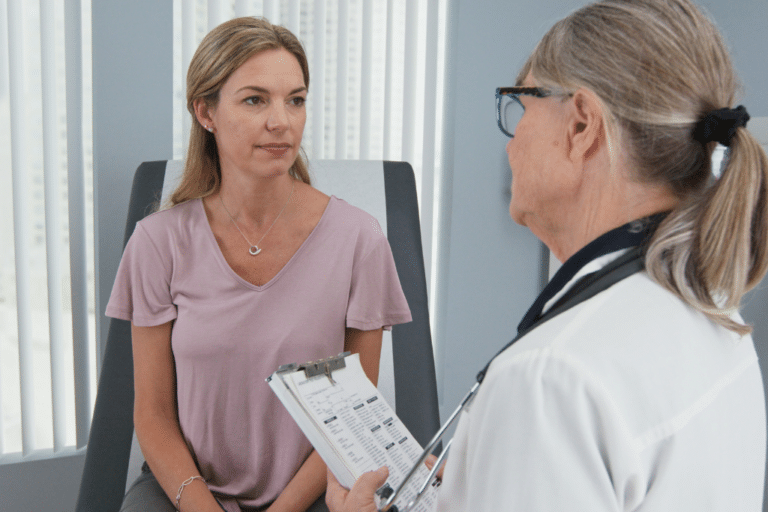“I was watching a video on YouTube and the doctor says progesterone increases the risk of your breast cancer when given with estrogen. Is that true? I’m scared I might be doing harm to myself! It’s so confusing.”
I get questions about progesterone at least once a week in the Hormone Harmony Club. It is probably THE most confusing topic that comes up.
Here’s how this problem started. Many regulatory agencies and members of the medical community make the mistake of thinking that progesterone and synthetic progestins are the same things. They are not. This erroneous interchange of words is the root of women’s concerns that progesterone causes cancer. It’s also why California requires cancer warning labeling on bioidentical progesterone. So what’s the truth???
What Does Progesterone Do?
Let’s start at the beginning. Why do we even care about this progesterone hormone? One of progesterone’s most important functions in the body is to help women maintain pregnancy. But it’s not just about baby-making. There are many research studies that show the protective role progesterone plays in the body. It protects against hypertension, lowers cholesterol, protects nerves and bones, and prevents coronary hyperactivity (a sign of coronary artery disease), and helps with hot flashes, night sweats, insomnia, and anxiety. There is also evidence that it may be protective against cancer.
What Does the Data Show?
If you look at the evidence, it’s no wonder there’s confusion.
The huge Women’s Health Initiative study, published in 2002, was stopped early when the data showed an increase in breast cancer, heart disease, blood clots, and strokes in women who were given traditional (for that era) HRT consisting of Premarin and Provera. As a result, estrogen was vilified in the media, and millions of women were thrown into hormone hell when they were abruptly taken off the hormones by their doctors.
In this study, women with a uterus were given synthetic estrogen (conjugated equine estrogen) PLUS synthetic progestin (medroxyprogesterone), synthetic estrogen alone (for women who had hysterectomies), or placebo (sugar pill). Bio-identical progesterone was NOT studied.
The results showed that women in the two-drug group were 24% more likely to develop breast cancer than women in the placebo group. However, women in the estrogen-alone group did NOT have an increased risk (and in fact, the trend was toward reduced risk). Further sub-analysis showed that the SYNTHETIC PROGESTIN was actually the culprit causing the increased breast cancer risk. This has also been borne out in a Danish study that showed a small increase in breast cancer risk with oral contraceptives and IUDs (all containing synthetic progestin).
Progestin ≠ Progesterone
Here’s why we’re all so confused. The medical community has lumped PROGESTERONE into the category of PROGESTINS. Progesterone is chemically identical to the hormone made by your body. Yes, it is made from a substance in wild yams (diosgenin) that is converted in a lab to progesterone, but it is STILL the compound your body makes. Your body cannot make this conversion on its own, so wild yam cream is not effective. Bio-identical products are available in creams, oils, and oral capsules. Creams and oils are available over-the-counter, but oral preparations require a prescription.
PROGESTINS (norethindrone, levonorgestrel, medroxyprogesterone acetate, etc.) are not chemically identical to what your body makes and may have many side effects such as acne, breast pain, nausea, weight gain, headaches, and irregular periods. Synthetic progestins are found in IUDs, implants, and oral contraceptives.
[bctt tweet=”There is NO evidence that progesterone increases the risk of breast cancer. None. Nada. Zip. #perimenopause #menopause #progesterone #progestins #breastcancer #DrJohnLee #WomensHealthInitiative #bioidenticalhormones #BHRT #synthetichormones #DrAnnaGarrett ” username=”DrAnnaGarrett”]
Can I Use Progesterone if I’ve had Breast Cancer?
In his book, “What Your Doctor May Not Tell You About Menopause”, Dr. John Lee (a pioneer in the study of progesterone) discusses the cancer-protective benefits of progesterone. He refers to various studies; one over a 20-year period which reported a 5.4 times likelihood of breast cancer developing in women with low progesterone levels. He concludes, “The evidence is strong that unopposed estradiol and estrone are carcinogenic for breasts, and both progesterone and estriol, the two major hormones throughout pregnancy, are protective against breast cancer.”
I am not aware of any large-scale clinical trials looking specifically at progesterone use in patients who have had hormone-sensitive cancers and I am relatively certain there will never be one. Progesterone cannot be patented and thus, there is no money to be made by doing a clinical trial. As with many therapies, it’s important to assess risk vs. benefit (including quality of life issues). Any woman who has a history of cancer should discuss the use of any hormonal therapy with her care team.
Dr. Anna Garrett is a menopause expert and Doctor of Pharmacy. She helps women who are struggling with symptoms of perimenopause and menopause find natural hormone balancing solutions so they can rock their mojo through midlife and beyond. Dr. Anna is the author of Perimenopause: The Savvy Sister’s Guide to Hormone Harmony. Order your copy at www.perimenopausebook.com.
Dr. Anna is available for 1-1 consultations. Find out more at www.drannagarrett.com/lets-




